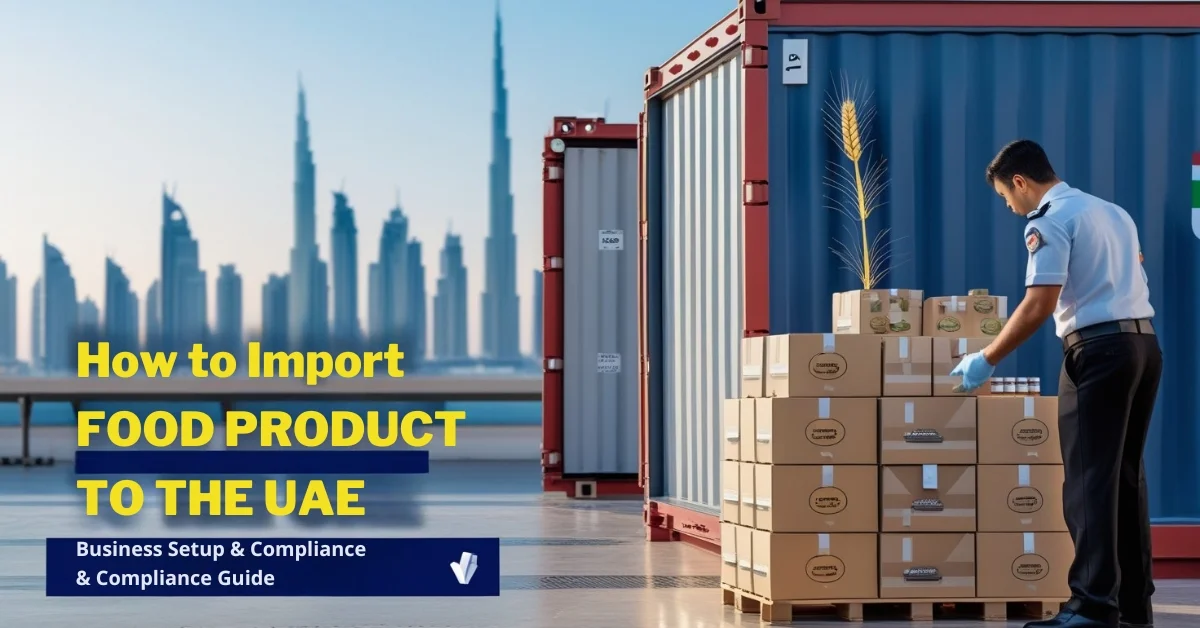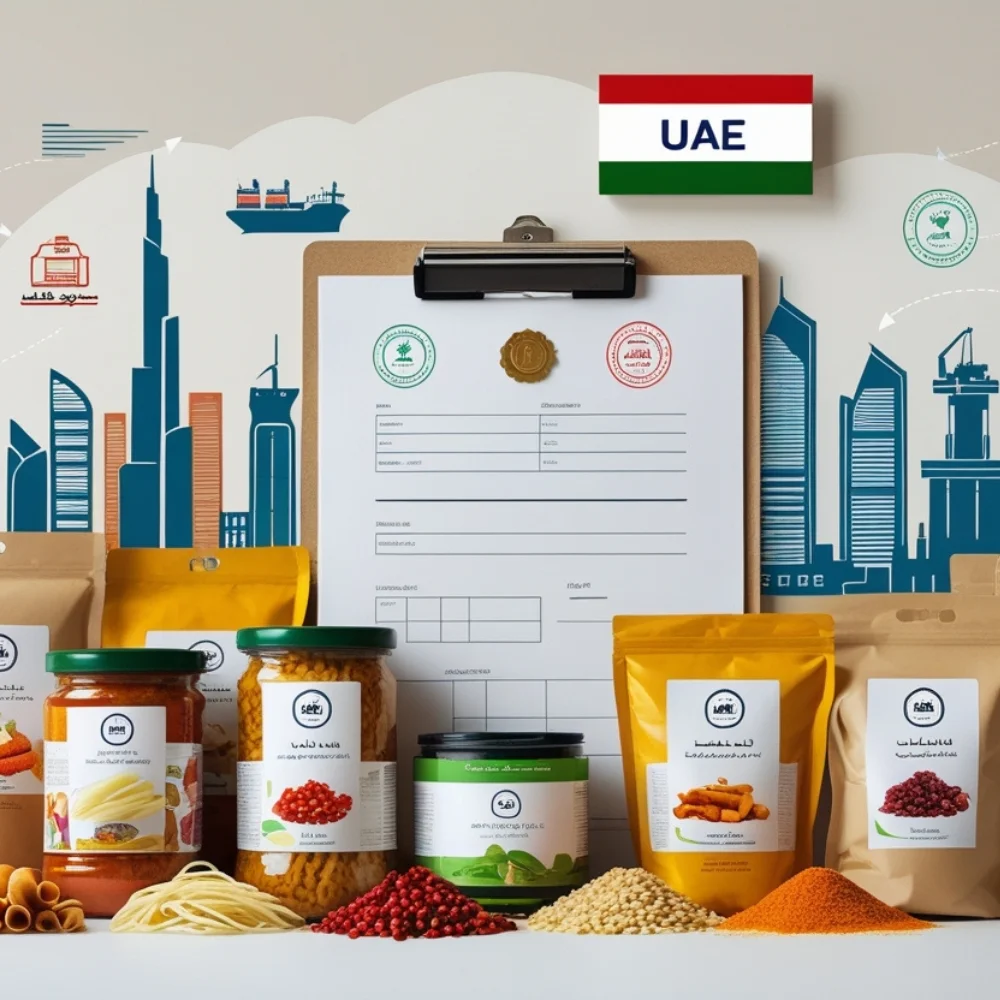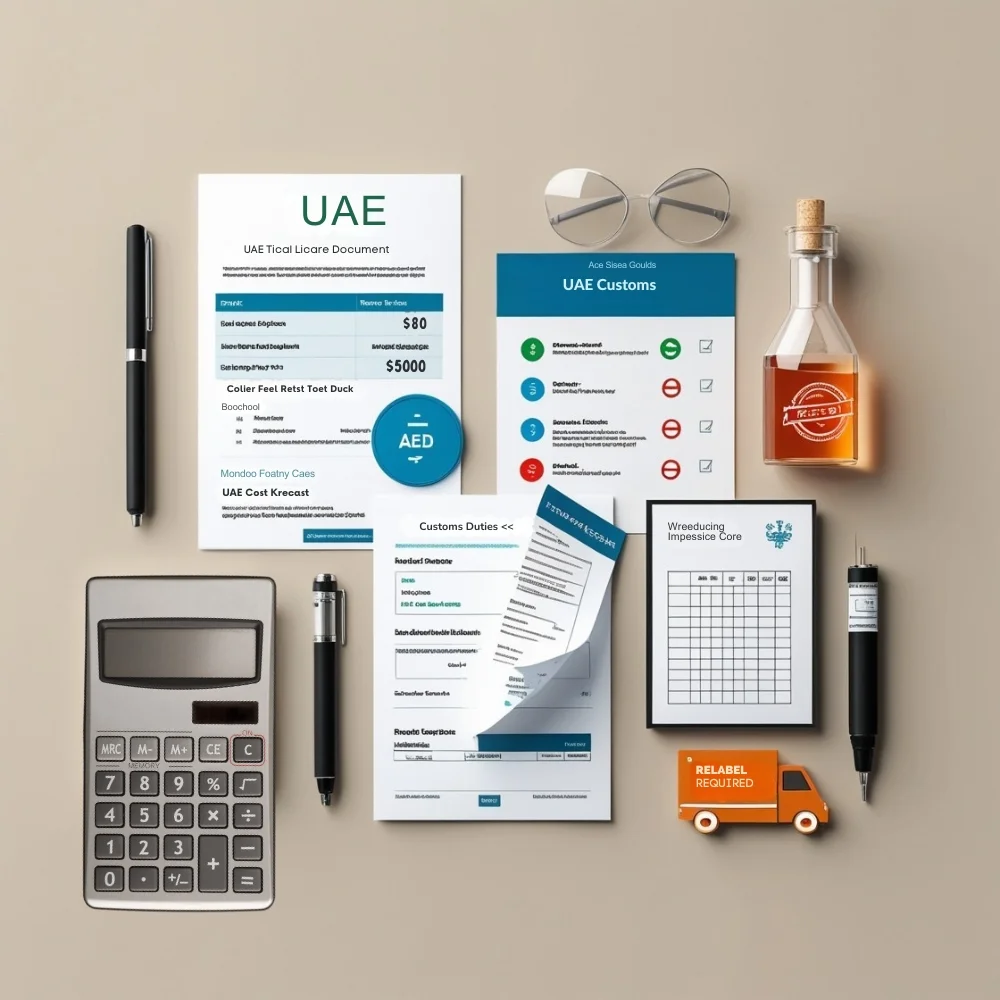
The UAE is one of the world’s fastest-growing markets for food trade, making it an attractive destination for entrepreneurs looking to import food products. With a rising population, high demand for diverse food options, and a strong logistics infrastructure, importing food into the UAE can be highly profitable if done correctly. But success in this sector depends on more than just supply and demand. Strict government regulations ensure that only safe, high-quality food enters the market.
Understanding UAE Food Import Regulations

Importing food into the UAE requires full compliance with local food safety laws. These are set by government bodies to protect public health and maintain quality standards. Here are the key regulatory authorities involved:
- MOCCAE plays a key role in setting and enforcing food safety regulations throughout the UAE.
- Dubai Municipality (DM) Manages the Food Import and Re-export System (FIRS)
- UAE Customs Handles clearance and duty payment
- Food Control Department Inspects shipments for safety and labeling compliance
Documents Needed to Import Food Products to the UAE
To import food products smoothly, you must prepare all the required paperwork. Missing or incorrect documents can halt your shipment at customs. Here are the essential documents:
|
Document Name |
Purpose |
Issued By |
|
Trade License |
Legal right to operate in the UAE |
DED / Free Zone Authority |
|
Import/Export Code |
Required to register with UAE Customs |
UAE Customs |
|
Health Certificate |
Confirms product safety |
Exporting Country |
|
Halal Certificate |
For meat and poultry products |
Islamic Authority |
|
Original Invoice |
Proof of purchase and value |
Exporter |
|
Certificate of Origin |
Shows the origin of goods | Chamber of Commerce |
| Packing List | Details on packaging and quantities |
Exporter |
Documents Needed to Import Food Products to the UAE
To import food products smoothly, you must prepare all the required paperwork. Missing or incorrect documents can halt your shipment at customs.
1. Set Up Your Business with a Valid Trade License
Before importing any food products, you must establish a legal business entity in the UAE. This can be done by obtaining a trade license through:
- A Free Zone Authority, ideal for 100% foreign ownership and simplified processes.
- To operate your business on the UAE mainland, you’ll need to obtain a license from the Department of Economic Development (DED) in the specific emirate where you plan to set up.
- The license must specifically cover the activity of food import and trading. Choosing the right jurisdiction and business structure is crucial for smooth operations.
2. Register with UAE Customs and Obtain an Import/Export Code
Once your business is legally registered, the next step is to register with the UAE Federal Customs Authority. You’ll need to:
- Create an account with Dubai Trade or the customs portal of your emirate.
- Apply for a Customs Code (Import/Export Code), which is mandatory to move goods through the UAE borders.
- This code links your trade license to customs clearance procedures.
3. Register Food Products with Dubai Municipality (FIRS)
Before you can import food items, each product must be registered with the Dubai Municipality’s Food Import and Re-export System (FIRS). This online system ensures all food products meet local safety, quality, and labeling standards. You will need to:
- Upload labels in English and/or Arabic.
- Pay the applicable registration fee.
- FIRS approval is mandatory before shipment clearance.
4. Submit an Import Permit Application for Each Shipment
Each incoming food shipment requires a specific import permit. This permit is applied through the FIRS platform and is reviewed by Dubai Municipality or the food control authority in the relevant emirate. Key requirements include:
- Valid product registration in FIRS.
- Commercial invoice, packing list, and bill of lading.
- Import permit application with shipment details.
- Import permits must be approved before the goods arrive at the port.
5. Arrange Shipment and Ensure Labeling & Packaging Compliance
When arranging international shipping, ensure your logistics provider understands UAE import regulations. The packaging and labeling must comply with UAE standards. If the packaging doesn’t meet UAE regulations, it may result in shipment delays, penalties, or even refusal of entry. which include:
- Clear mention of ingredients, nutritional value, manufacturing, and expiry dates.
- Labels in Arabic and English.
- Halal certification, if applicable.
6. Clear Customs and Undergo Inspection & Testing
When the shipment arrives at a UAE port, it must go through customs clearance and might be subject to further checks:
- Physical inspection by Dubai Municipality or food control authorities.
- Laboratory testing, especially for perishable, dairy, or meat products.
- Review of labeling, packaging, and storage conditions.
- Only when the inspection is completed can the shipment be released.
7. Distribute or Sell Your Food Products Across the UAE
After customs clearance and product approval, your food items are legally ready for sale or distribution. Maintaining proper documentation and renewing permits regularly ensures continued compliance. You may:
- Supply to supermarkets, wholesalers, or restaurants.
- Sell through e-commerce platforms or retail outlets.
- Export to neighboring GCC countries.
Labeling and Packaging Requirements in the UAE
Proper labeling and packaging are essential for successfully importing food products into the UAE. Incorrect or incomplete labels are one of the most common reasons why shipments get delayed, fined, or even rejected at the port. To comply with UAE food import regulations, each product must have a label that includes the following key details:
- Product Name: Display the official name of the food item as it is commonly recognized and marketed to consumers.
- Ingredients List: Include all ingredients in descending order by weight, highlighting any allergens (such as nuts, dairy, or gluten).
- Country of Origin: Specify the nation where the product was manufactured or processed, as this is required for transparency and regulatory compliance.
- Manufacture and Expiry Dates: Display the production and best-before dates using a clear date format (e.g., DD/MM/YYYY).
- Storage Conditions: Indicate how the product should be stored—whether it requires refrigeration, freezing, or can be stored at room temperature.
- Manufacturer Details: Include the full name and physical address of the company responsible for producing or distributing the product, ensuring traceability and accountability.
- Nutritional Information: Present details such as calories, fat, protein, sugar, and other relevant nutrition facts per serving or 100g/ml.
1. Arabic Labeling a Mandatory Requirement
In the UAE, Arabic language labeling is legally required. All mandatory information listed above must be presented in Arabic. English can be included, but it cannot replace Arabic. Also, for new products, the label information must be printed directly on the packaging; using stickers or temporary labels is not allowed. This ensures durability and clarity during inspection and shelf life.
1. Avoiding Delays with Accurate Packaging
If your labeling or packaging fails to meet UAE standards, you risk:
- Customs delays
- Re-inspection or product recalls
- Penalties and fines
- Rejection of the shipment entirely
Cost Considerations When Importing Food to the UAE

Importing food products into the UAE involves several important expenses that should be accounted for early in your business planning. Although exact costs may vary depending on the product type, quantity, and shipping origin, the following are key areas where financial planning is essential:
1. Trade License and Company Formation
Before importing any goods, you must set up a legal business entity in the UAE. Whether you choose a Free Zone or Mainland setup, obtaining the appropriate trade license is your first investment. This license must cover activities related to food trading or import.
2. FIRS and Customs Registration Fees
To legally bring food products into the UAE, your business must be registered with both the Food Import and Re-export System (FIRS) and UAE Customs. These registrations involve application fees and possibly renewal or service charges.
3. Customs Duties
Most food imports are subject to customs duties, typically charged as a percentage of the product’s declared value. While food items generally attract lower tariffs, they must still be factored into your cost structure.
4. Laboratory Testing and Inspections
Depending on the nature of the food (perishable, processed, or animal-based), your products may be required to undergo laboratory testing and physical inspection by local authorities. These procedures ensure compliance with UAE food safety standards and come with associated fees.
5. Local Transportation and Storage
Once your goods clear customs, you’ll need to arrange for warehousing and local delivery. Costs here include cold storage (if required), handling, and transportation to distribution points, retail locations, or fulfillment centers.
6. Compliance and Relabeling Costs
If your shipment does not meet UAE labeling or packaging standards, you may face delays, fines, or relabeling requirements. This could result in unexpected additional costs or even complete rejection of the shipment.
Plan for a Smooth Import Process
Being aware of these expenses allows you to plan your import budget more accurately and prevent unexpected setbacks. Even though exact figures depend on your business model, it’s wise to prepare for all possible fees related to setup, compliance, inspection, and logistics. At Lukadah, we offer tailored guidance to help you manage these costs efficiently. From company formation to customs clearance, we handle every detail, so you can focus on growing your food import business in the UAE with confidence.
📞 : +971 4 394 0800
📧 : info@lukadah.com
Related Topic:
